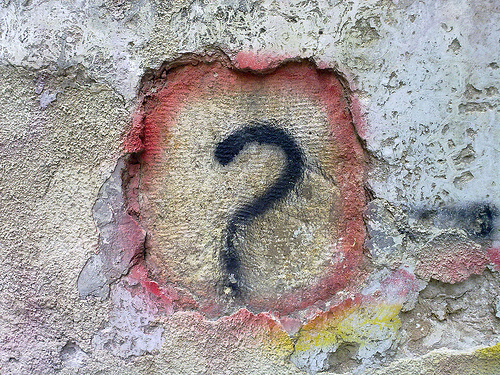We run our website the way we wished the whole internet worked: we provide high quality original content with no ads. We are funded solely by your direct support. Please consider supporting this project.
When Jesus Questioned the Father
Though the sinless Son of God had perfect faith, we find him asking God the Father to alter the plan to redeem the world through his sacrifice—if it is “possible” (Matt. 26:42). As the nightmare of experiencing the sin and God-forsakenness of the world was encroaching upon him, Jesus was obviously, and understandably struggling. So, even though this plan had been predestined for ages by the Trinity, Jesus desperately asked for an alternative.
Of course, there was no other alternative in this instance. Jesus had to suffer. And though it caused him to sweat drops of blood, Jesus willingly submitted to the Father’s will. Yet the very fact that Jesus tried to influence the Father to change the plan (and sweat blood in the process) demonstrates that his perfect faith and obedience didn’t mean he never struggled and never tried to push back on God’s plan, just as Moses and so many other heroes of the faith had done before.
So, whether your struggle is with doubt, confusion, the challenge of accepting God’s will, or any other matter, the fact that you have the struggle does not indicate that you lack faith. To the contrary, your faith is strong to the degree that you are willing to honestly embrace your struggle.
Yet the example of Jesus struggling in Gethsemane pales in significance compared to the way he struggled on the cross. In the moment when the Son of God, for the first time in eternity, experienced separation from the Father as he bore the sin of the world, Jesus cried out, “My God, my God, why have you forsaken me?” (Matt. 27:46). Though the plan that involved this sacrifice had been settled within the Trinity for ages, it seems that in this singularly hellish moment Jesus had become foggy about it. And so the Son of God questioned the Father: “Why?”
If one believes that a person’s faith is as strong as they are certain and free of doubt, they have no choice but to accept that Jesus’s faith faltered at this crucial moment, which would imply that Jesus sinned at this crucial moment. This is impossible, however, for it conflicts with both Scripture and the uniform conviction of the historic orthodox church. Faith and doubt are not antithetical. A perfect faith need not be one that is free of doubt. What a perfect faith needs to be is first and foremost authentic, which is precisely what Jesus demonstrated when he cried out.
Had Jesus instead managed to suppress his sincere bewilderment to preserve a more pious appearance, then he would have demonstrated a defective faith. For while an unquestioning crucified Messiah would certainly have appeared more pious and would have more closely conformed to what we might have expected a sinless Messiah to look like, it would have demonstrated a less-honest relationship with the Father for Jesus to refrain from expressing the full horror of what he was experiencing.
—Adapted from Benefit of the Doubt, pages 93-94, 97
Category: General
Tags: Doubt, Faith, Garden of Gethsemane, Jesus
Topics: Faith & Doubt
Related Reading

Why Christ, not Scripture, is Our Ultimate Foundation
In a previous blog I argued that all our theological reflection must not only be Christ-centered, it must, most specifically, be cross-centered. I now want to begin to unpack some of the most important implications of adopting a cross-centered theological perspective. My ultimate goal is to show how a cross-centered theology is able to resolve the…

Getting Behind the “Letter” of Violent Portraits of God
“I will do to you what I have never done before… in your midst parents will eat their children, and children will eat their parents…” Ezek. 5:9-10 In my previous post I offered a brief review of Matthew Bates’ fascinating work, The Hermeneutics of the Apostolic Proclamation by Matthew Bates (Baylor University Press, 2012). Among other…

Podcast: Dear Greg: My Husband is Anti-Theist, What Should I Do?
A godly house with an unbelieving spouse. Greg discusses unbelieving partners. http://traffic.libsyn.com/askgregboyd/Episode_0418.mp3

The Longing of Advent
The Advent season is a time of anticipating the coming of God, in Christ, a time of turning our imagination toward the revelation of God’s love for us. This after all is the deepest longing of our heart, and our natural longings always point us to something real. We grow hungry only because there’s such…

The Jesus Seminar and the Reliability of the Gospels
The Jesus Seminar The primary driving force behind the popular media’s present preoccupation with liberal views of Jesus has been the Jesus Seminar. This Seminar, first convened in 1985 by Robert Funk, is a gathering of 100 or so mostly liberal New Testament scholars who meet on a regular basis. They have determined, by a…

Lighten Up: The Jesus Eraser
“For he himself is our peace, who has made the two groups one and has destroyed the barrier, the dividing wall of hostility…” Ephesians 2:14 Image by David Hayward @ www.nakedpastor.com.

